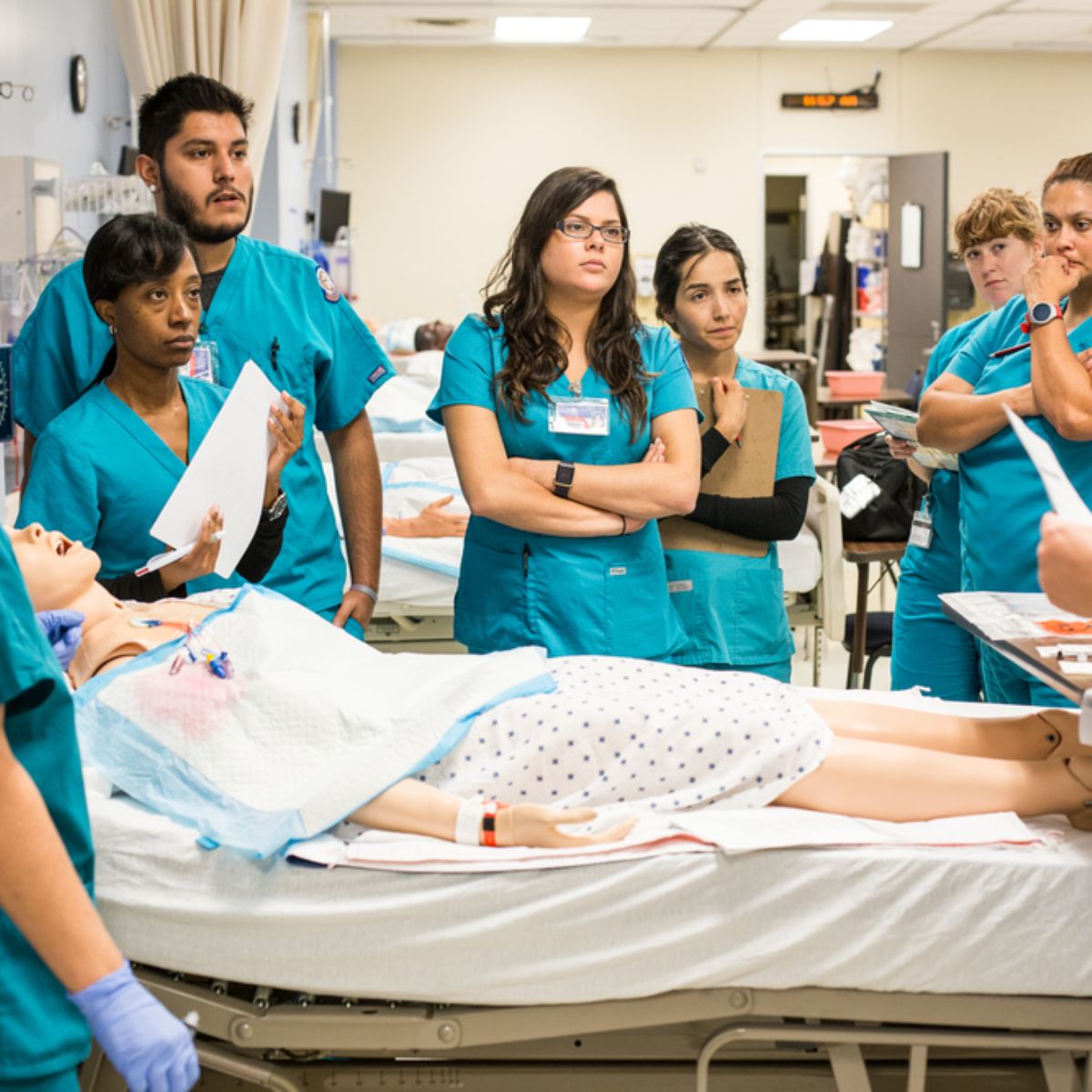Registered nurses (RNs) are often called the backbone of the healthcare industry. They are responsible for almost all aspects of patient care, from giving medication and performing diagnostic tests to educating patients and their families on their illnesses and treatments. The more educated and experienced an RN is, the more likely that their patients will have good outcomes.
Students who want to become an RN should look for nursing programs whose graduates are in high demand.
In this Article
What Does an RN Do?
No matter where RNs work, whether they work for a hospital, a school, private practice, or outpatient surgery center, they have specific job duties. RN responsibilities can be divided into two categories: clinical care and patient communications. It may seem as if the most important RN duties are clinical, or medical, care. However, both types of responsibilities can make a difference in patient outcomes. That’s because while a doctor manages a patient’s disease, a nurse’s responsibility is to care for the patient as a whole person.
Clinical Care Duties
Clinical care means the direct treatment of a patient’s medical condition. Before a doctor sees a patient, a nurse carries out the initial intake. After a doctor makes a diagnosis and determines a course of care, it’s the role of the nurse to perform any tests or administer medications or treatment. These clinical care duties include:
- Take vital signs (blood pressure, pulse, blood oxygen level, and more)
- Take patient medical history
- Record symptoms
- Perform diagnostic tests
- Carry out the orders of doctors, nurse practitioners, and other providers
- Advise doctors on patient status
Patient Communication and Education
Patient communication is an important part of an RN’s job, especially in a hospital or emergency room setting. Patients and their families are likely anxious or fearful, and need more than just clinical care. RNs have to communicate with patients so they can understand their condition, treatment, and options. They must be able to explain complicated concepts to people without a medical background. Even in low-stress environments, such as a doctor’s office for a simple ailment, patients may need extra time so they can fully absorb their diagnosis and treatment options.
Communication includes:
- Educate patients so they can make decisions on their own care (also called patient-centered care)
- Teach patients and their families how to manage their illness or injury
- Communicate well with colleagues, patients, caregivers, social workers, and others
- Manage certified nursing aides or licensed vocational nurses
RN Skills, Certifications, and More
RNs have a highly specialized skillset. Their technical competencies include:
- The use of medical and diagnostic equipment
- Knowledge of pharmacology and pharmaceuticals
- Experience with medical and surgical procedures
- Experience with critical, emergency, or intensive care conditions
RNs also must be proficient in soft skills. As mentioned above, communication skills are key to a nursing career. Nurses must also have:
- Compassion and empathy for patients and their families (bedside manner)
- Leadership skills, since RNs must manage nurses aides and other staff
- Keen observational skills; nurses often know before doctors when a patient’s status has changed
- Critical thinking skills, which can help nurses analyze a patient’s condition and make decisions based on what they see
- Problem solving and decision making, often under pressure
As nurses gain experience, they also must build their skills with certifications. Nurses start with basic certifications, such as CPR or phlebotomy. As they advance, RNs will earn advanced certifications, such as CCRN (Acute/Critical Care Nursing) or CEN (Certified Emergency Nurse).
Nurses must also be aware of the challenges that come with the profession. It’s physically demanding, as patients may need to be lifted, and emotionally demanding, as patients suffer. RNs must be sensitive to the signs of burnout and compassion fatigue.
RN vs. LVN
Students who are interested in a career in nursing may be confused by the difference between RNs and LVNs. The licensed vocational nurse, also known as the licensed practical nurse, has many of the same duties as an RN. However, an LVN performs patient care tasks under the management of an RN. LVNs also provide education to patients but under an RN’s guidance.
LVNs also make less money than RNs, and have less of a career pathway. In many nursing programs, getting certified as an LVN is a stepping stone to becoming an RN.
How Much Does an RN Make?
According to the U.S. Bureau of Labor Statistics, the median hourly wage for RNs is $37.31, as of 2021. An RN salary will vary depending on workplace and years of experience. RNs who choose to become travel nurses after one or two years of experience can see their salary double or even triple.
RNs who get their BSN (bachelor of science in nursing) have higher earnings potential. A BSN is necessary for nurses who want to move into an administrative position or get an advanced practice degree.
Become an RN
The most important step in becoming an RN is to choose the right program for your education. A nursing program should have public information on:
- Accreditation. Look into the accreditation of the nursing program and its graduation and NCLEX pass rates
- High NCLEX pass rates. Nurses must pass the NCLEX before they can become RNs. State nursing boards have statistics on NCLEX pass rates for nursing programs
- Job placement. A nursing program should have a relationship with regional healthcare employers to make sure that graduates get that first job
Interested in becoming an RN? Explore ACC’s associate and RN-to-BSN programs as a first step toward a career in nursing in Central Texas.
Tags: ACC nursing programs
Back to Top






